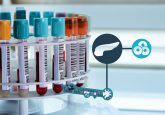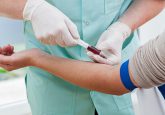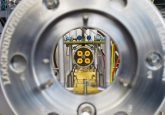Lung cancer breath test device to undergo clinical trial

Researchers at the University of Leicester (UK) are soon to lead a clinical trial of a device developed to detect lung cancer in breath samples. The device, engineered by Owlstone Nanotech Ltd (Cambridge, UK), is based on a GC-Field Asymmetric Ion Mobility Spectrometry (FAIMS) sensor, and measures the volatile organic compounds found at low concentrations in a patient’s breath to detect markers of lung cancer.
The second phase of the Lung Cancer Indicator Detection (LuCID) program aims to further evaluate the GC-FAIMS sensor in a lung cancer clinic at Glenfield Hospital (Leicester, UK) later this year. Salman Siddiqui, a clinical senior lecturer and adult chest physician at the University of Leicester and Glenfield Hospital, will lead the clinical study, with the trial results expected in early 2016.
Siddiqui commented on the potential scope of the work: “This project will seek to identify and evaluate biomarkers in order to improve the accuracy and reliability of breath diagnostic methods. We will also be aiming to establish FAIMS as a faster, less expensive and more portable alternative to GC-MS for breath diagnosis applications.”
If successful, the LuCID program could lead to a non-invasive method of lung cancer diagnosis, with detection possible in the early stages of the disease. This would also provide an alternative to current procedures for diagnosing lung cancer, such as chest X-ray, CT scan and bronchoscopy. Siddiqui explained the importance of the new device: “Lung cancer has one of the lowest 5-year survival rates of all cancers; however, early diagnosis can greatly improve a patient’s prognosis.”
The NHS Small Business Research Initiative (Cambridge, UK) awarded Owlstone £1 million towards the clinical study phase of the LuCID program. Billy Boyle, co-founder of Owstone, also commented on the research: “FAIMS technology has the potential to bring a quick and easy-to-use breath test to a GP’s office. Our team will not rest until we help stop the daily devastation that cancer brings to patients and their families.”
The device developers have hopes that, if the clinical trial proves successful, the project will lead to the new breath test technology being evaluated in other hospitals and GP surgeries.
Source: Groundbreaking lung cancer breath test in clinical trial.




